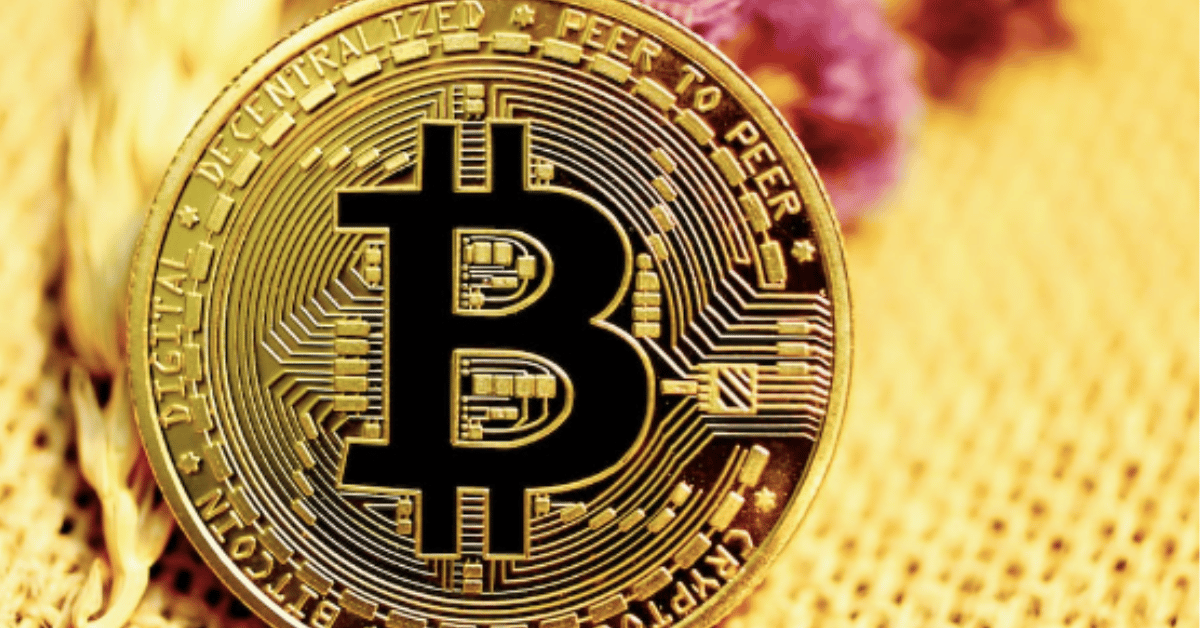How The BlackRock ETF Could Be Bad News For Bitcoin

Jan. 8 2024, Published 2:32 p.m. ET
Of the many things that the crypto world has to be excited about in 2024, the potential BlackRock ETF is perhaps at the top of the list. The industry has been pursuing an ETF for years and multiple companies have been denied thus far.
BlackRock looks to be in the final stages of its application and many think it will be a shoo-in for approval. With this could come several benefits for those who use crypto and could even trigger a bull run that will introduce a new all-time price high for Bitcoin.
But according to Arthur Hayes, the co-founder of BitMEX, this ETF could also bring some negative consequences that, if unchecked, could destroy Bitcoin altogether.
The Downsides of the ETF
According to Hayes, we need to consider the fact that firms like BlackRock that launch ETFs specialize in a mass asset acquisition. This ETF will likely see a huge demand and to satisfy it, BlackRock will need to buy up a lot of Bitcoin. On its own, that sounds like a good thing. But at the same time, any Bitcoin expert will tell you that a certain amount of tokens need to remain in circulation to ensure a healthy ecosystem.

More specifically, there needs to be enough Bitcoin in circulation to reward the users who validate transactions. But if all the Bitcoin is gone to ETFs run by billion-dollar corporations, there will be fewer, if not none, everyday people to initiate Bitcoin transactions. A lack of transactions means a lack of transaction fees being paid to validators. Eventually, the validators will have no motivation to continue and will not even be able to afford the network’s fees. One by one, these validators will shut off their machines and over time, the Bitcoin network will die.
How This Could Affect Bitcoin Users
We don’t yet know if this network death will take place at all but it must be acknowledged that large investment companies taking up too large a portion of all the crypto in the market will affect everyone who uses Bitcoin in different ways.
For those who invest in Bitcoin, there is a chance of initially making mammoth profits. As companies buy up Bitcoin for their ETFs, the price of Bitcoin should initially spike because of the increased scarcity. This means that some traders can eventually sell their tokens for a massive profit. But this will not likely last because once too many of the tokens are concentrated in ETFs and none are available to pay the validators, the tokens that are held by traders will be essentially worthless.
The Bitcoin ecosystem, as we’ve established, needs tokens circulating to stay healthy so it would be in the best interests of investors that Hayes’ prediction does not come true.
Then there are people who use Bitcoin for non-investment reasons. There are many businesses that accept Bitcoin as payment for goods and services and this means that there is a category of Bitcoin users who use the token for domestic payments. They too will be affected if Hayes’ prediction comes true because a lack of network validators means that their transactions cannot be validated.
If Bitcoin transactions cannot be validated, this means that sending and receiving Bitcoin will be tricker for users. On top of this, Bitcoin users who want to spend their tokens will need to find other alternatives. If you as a consumer found an online casino where you can gamble with cryptocurrency, for example, you might need to switch to other tokens instead. Thankfully, many online crypto casinos accept several cryptos alongside Bitcoin.
And that’s not even touching on those who have a significant chunk of their savings held in Bitcoin as a hedge against inflation. Providing some sort of insurance against inflation has been a major selling point of Bitcoin and this is taken away in the event of validators leaving en masse.
At the end of the day, Bitcoin is not just an investment vehicle but a currency. And at any given time, there are many people who need the currency to pay for everyday expenses. In the same way, the destruction of a central bank would render fiat currency worthless and upend people’s lives so would the collapse of the Bitcoin ecosystem.

What Happens Next
In a blog post, Arthur Hayes says that if this does happen and we witness the death of Bitcoin in real-time, another digital asset will rise up and take its place. There are thousands of other tokens in the market and one of them might just become the next big thing in crypto.
There are also several Central Bank Digital currencies due to launch this year and one of them could offer an alternative to Bitcoin if this prediction comes to pass.
The information provided in this article is for general informational purposes only. Gamble or play responsibly. If you or someone you know has a gambling problem, help is available. Call 1-800-GAMBLER. If you’re in the U.K. and need help with a gambling problem, call the National Gambling Helpline on 0808 8020 133 or go to gamstop.co.uk to be excluded from all UK-regulated gambling websites. We disclaim any liability for any loss or damage arising directly or indirectly from the use of, or reliance on, the information presented.


